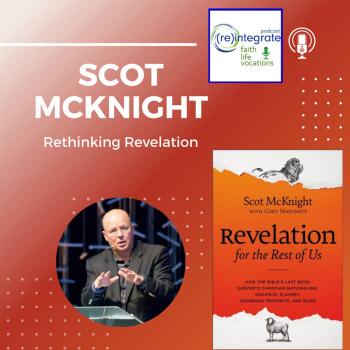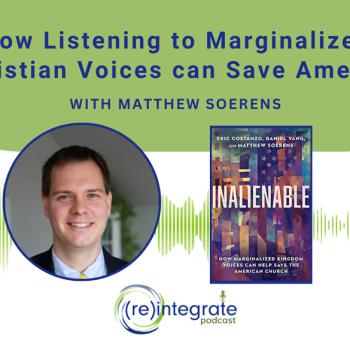Andy Crouch, of Christianity Today and author of Culture Making: Recovering Our Creative Calling, wrote an excellent article at CT’s website, “What’s So Great About ‘The Common Good’?: Why Christians need to revive the historically rich phrase.”
This phrase, “the common good,” is making a renewed comeback in evangelical Christianity. It is being spurred on by institutions like Gordon College and its president Michael Lindsay, Q Ideas and its founder Gabe Lyons, the New Evangelical Partnership for the Common Good and its founder Richard Cizik, Redeemer Presbyterian Church and her pastor Tim Keller, The Washington Institute and its leader Steve Garber, the Center on Faith in Communities and its director Amy Sherman (her new book in entitled Kingdom Calling: Vocational Stewardship for the Common Good) among many others.
Wait, shouldn’t Evangelical Christians be more concerned about personal salvation than the “Common Good?” Isn’t that just communism in disguise?
Crouch does a wonderful job explaining what this concept means, its history in the Christian church, and why we should embrace it. He taps into the insight of esteemed sociologist Christian Smith – who shows how the concept of the common good actually critiques both communism and its opposite, libertarianism The extreme Left puts humanity as a collective above the individual while the extreme Right places the individual above the collective. The Common Good recognizes the dignity of each individual person while understanding that individuals cannot thrive without common institutions in society.
Crouch writes,
Essential to the common good, all the way back through Aquinas to Aristotle, has been the insight that the best forms of human flourishing happen in collectives that are smaller than, and whose origins are earlier than, the nation-state. Family above all, but also congregations, guilds, and clubs—these “private associations,” with all their particular loyalties, paradoxically turn out to be essential to public flourishing. If we commit ourselves to the common good, we must become more public in our thinking and choices, and at the same time not too public. The common good is sustained most deeply where people know each other’s names and faces—especially when it comes to the care of the vulnerable, who need more than policies to flourish.
Seeking the common good in its deepest sense means continually insisting that persons are of infinite worth—worth more than any system, any institution, or any cause. Societies are graded on a curve, with the fate of the most vulnerable given the most weight, because the fate of the most vulnerable tells us whether a society truly values persons as ends or just as means to an end.
And the common good continually reminds us that persons flourish in the small societies that best recognize them as persons—in family and the face-to-face associations of healthy workplaces, schools, teams, and of course churches. Though it is a big phrase, “the common good” reminds us that the right scale for human flourishing is small and specific, and that the larger institutions of culture make their greatest contribution to flourishing when they resist absorbing all smaller allegiances.
With Reintegrate, I am attempting to train God’s people, and especially the pastoral leadership of God’s people, to embrace a paradigm shift. We have for far too long seen the concept of the Common Good as opposed to the gospel of Christ. We have categorized it as “Social Gospel,” that liberal idea of the mid-twentieth century that the gospel is only about changing society and not about individual salvation and relationship with God through Christ.
In the past decade or so, we are starting to realize that it isn’t an either/or (social gospel or individual gospel) but both/and. The both/and says that the gospel is the “kingdom of God” (a rediscovery that this is the “good news” that Jesus himself preached in his earthly ministry – see Luke 4:43). And this gospel of kingdom means that all things on earth are being reclaimed/redeemed/restored/reconciled by God. The pinnacle of God’s creation, humanity, is the center of God’s redemptive plan. Individuals must receive new life in Christ in order to participate in the new creation that God has initiated in Christ.
We have come to realize that a gospel of individual salvation that is not interested in doing things for the common good is a dead faith (see James 2:17) and of we are not doing good for those around us, we do not have a legitimate witness to the power of Christ to change life (see 1 Peter 3:13-17).
Image by the italian voice. Used with permission. Sourced via Flickr.












